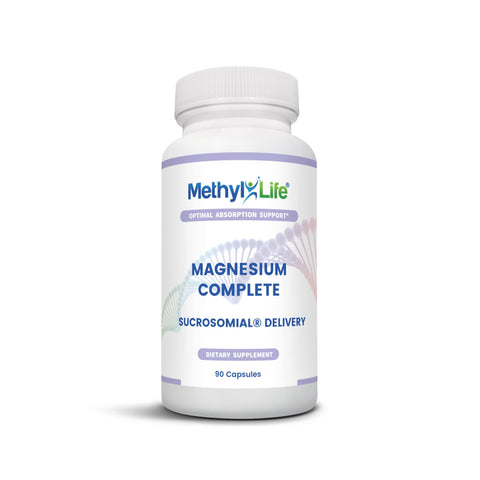Magnesium, Methylation, and the MTHFR Gene
Magnesium is essential for the proper functioning of numerous processes within the body. As a cofactor for more than 300 enzymatic reactions, it is involved in muscle contraction, neuromuscular pathways, glucose maintenance, heart contraction, and blood pressure regulation.
Magnesium is also essential for energy production, nucleic acid synthesis, bone development, and the active transmembrane transport of other ions (i.e., the movement of molecules across cell membranes using ATP).
Above all, magnesium is a vital cofactor in the methylation cycle, and its deficiency may contribute to other MTHFR-related symptoms.
This article will discuss the body’s needs for magnesium and its role in methylation. We will explain how to identify and correct a magnesium deficiency and why this is so important for those with an MTHFR gene mutation.













